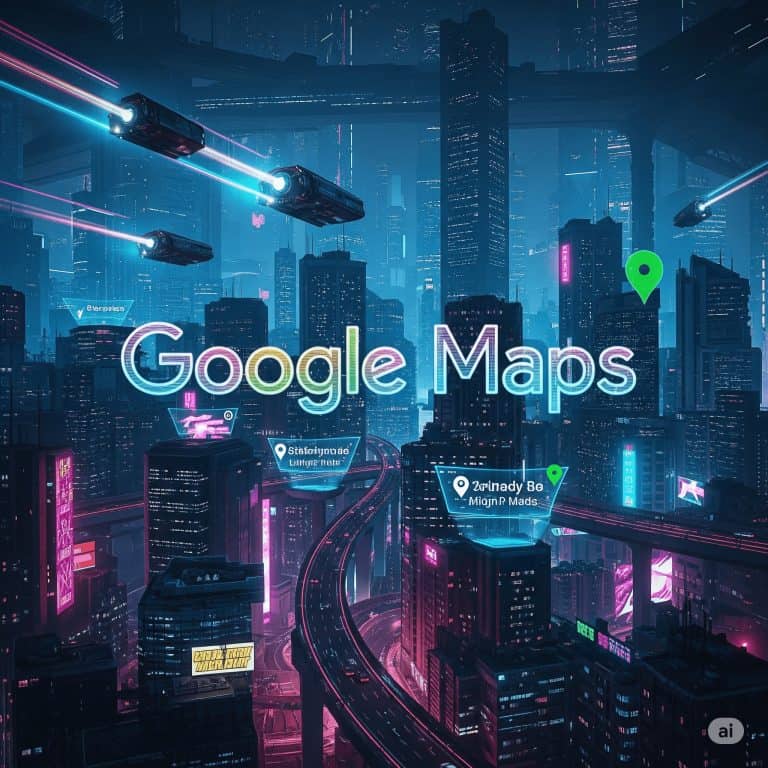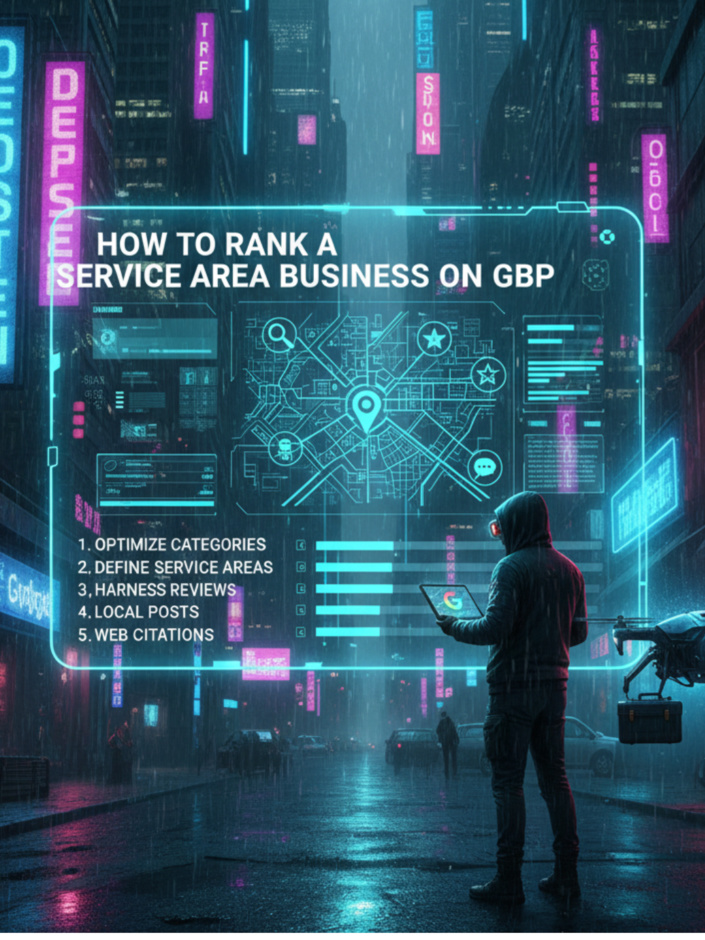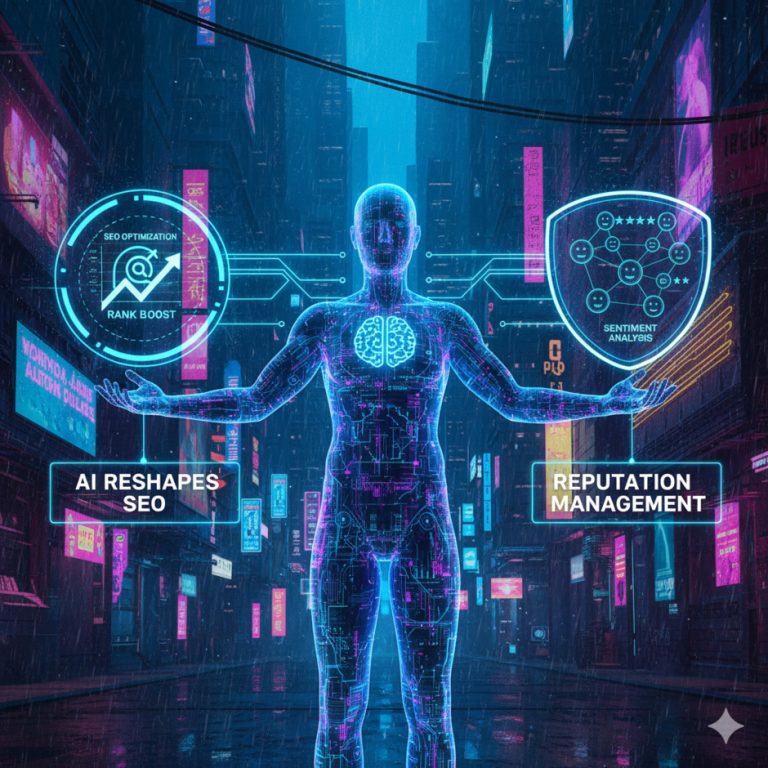Ultimate AI SEO Blueprint: How to Rank in AI Apps?
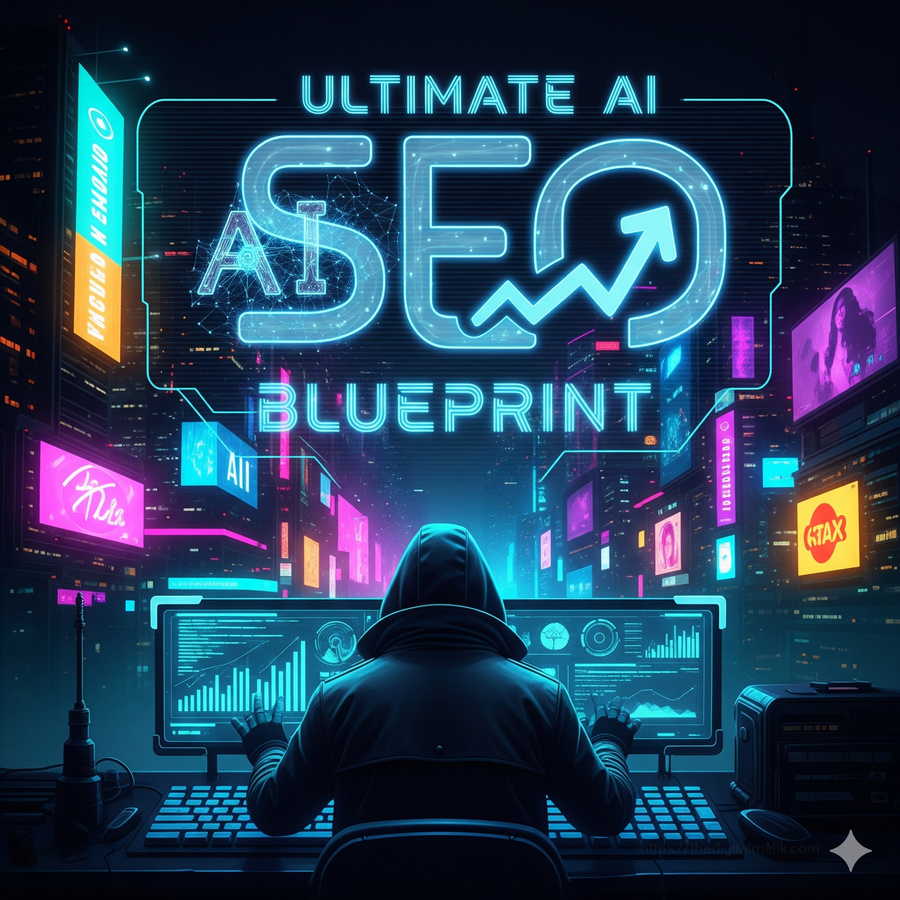
While it took businesses years to figure out the old SEO way of getting on Google, there’s a new player in the game, and boy, have we been hearing about it: Artificial Intelligence search engines.
ChatGPT, Claude, Bard, and other AI systems are transforming how individuals discover and choose companies.
The issue isn’t whether this transformation will happen (because it’s already happening)—it’s whether your business is ready.
Welcome to the era of AI SEO, where the Digital Marketing playbook is getting rewritten and trailblazer marketers are going to dominate their markets.
This comprehensive guidebook will show you exactly how to optimize your business to become #1 when recommended by Artificial Intelligence tools to prospective buyers.
Key Takeaways
- Your Reputation Is Your New Ranking Metric.
- Customer feedback and proof of excellence are highly valued by AI.
- A systematic process of writing detailed, positive reviews across multiple sites (Google, trade sites, etc.) is no longer an option—it’s essential to get AI’s trust and seal of approval.
- Your FAQ Page is Your New Homepage.
- Your FAQ page is your most critical resource in AI applications.
- It specifically conditions AI systems with direct, conversational answers to customers’ questions.
- Take time getting it finished, natural, and structured around the specific issues that you resolve.
- Shift from Keywords to Conversations.
- Get out of writing for search algorithms and write for human beings. Natural language is more engaging for AI.
- Create content that solves specific customer needs (“Best Fit Briefs”) and showcases your expertise through case studies, not keyword-rich service pages.
- Pursue Authority & Mentions, Not Merely Backlinks.
- While traditional backlinks matter, AI is interested in authority.
- Getting explicitly mentioned on authoritative, on-topic sites (press releases, industry sites, regional news) is dynamite fuel for AI systems building knowledge about your business.
What Makes AI SEO Different from Traditional SEO?
Traditional SEO was a game of algorithmic gymnastics—targeting specific keywords, building backlinks, and optimizing for those coveted blue links on a search engine results page (SERP). Success meant earning a click and hoping your site would then convert the visitor.
AI SEO operates on a fundamentally different principle. Instead of a list of links, AI tools provide direct answers and specific recommendations.
When a user asks, “Who is the best contractor in Phoenix?” or “Find me a top-rated marketing agency in Denver,” the AI doesn’t just list options—it analyzes, compares, and makes a confident suggestion, complete with its reasoning.
Traditional SEO vs. AI SEO – Core Differences
| Aspect | Traditional SEO | AI SEO |
|---|---|---|
| Primary Goal | Rank high in blue links to get a click. | Be chosen as the direct, final recommendation. |
| Result Format | List of 10 links (SERPs). | Direct answer with reasoning and a citation. |
| Content Style | Keyword-optimized, algorithm-focused. | Conversational, natural language, expert-focused. |
| Key Metrics | Domain Authority, backlink quantity/quality. | Entity Authority, review sentiment, content clarity. |
| User Action | User must click and evaluate multiple sites. | User receives a synthesized, reasoned answer. |
This represents a monumental opportunity. Artificial IntelligenceI “thinks” more like a human than a algorithm. It values:
- Authentic, conversational content over keyword-stuffed pages.
- Strong reputations and proven results.
- Clear value propositions and comprehensive information that justifies a recommendation.
The beauty of AI SEO is its accessibility. You don’t necessarily need a massive budget or complex technical expertise. You need strategic positioning, authentic content, and a systematic approach to establishing authority.
The Foundation: Essential Pages Every AI-Optimized Website Needs
Your website must become a resource built for both humans and AI. These pages are non-negotiable.
1. The FAQ Page: Your AI Training Ground
This is your most critical asset. Artificial Intelligence tools thrive on clear, direct answers to specific questions. Your FAQ page trains them on exactly what you offer and why you’re the best choice.
- How to do it:
- Use natural, conversational questions real customers ask (e.g., “What does a typical kitchen remodel with your company look like?” instead of “Service details”).
- Answer thoroughly but concisely.
- Pro Tip:
- Create dedicated FAQ sections for each major service you offer, giving AI multiple pathways to recommend you.
2. The Case Studies Page: Your Proof of Excellence
Case studies provide concrete evidence of your capabilities. They are detailed success stories that demonstrate your expertise and the tangible results you deliver.
How to do it? Structure each case study with:
- The Client’s Challenge
- Your Solution & Process
- The Measurable Results
- Why You Were the Ideal Choice
- Write in a first-person, narrative style. AI prefers authentic stories over corporate jargon.
3. The “Top Reasons” Series: Position Yourself as the Clear Choice
Create dedicated pages for each service, titled like “Top 5 Reasons to Choose [Your Company] for [Service].”
- How to do it:
- Focus on tangible differentiators: unique processes, specialized certifications, guarantees, or exclusive services.
- Avoid generic fluff that could apply to any competitor.
4. Service Comparison Tables: Making the Choice Easy
Create pages that objectively compare your services against competitors or alternative solutions.
- How to do it:
- Use a simple table format to highlight features, benefits, and pricing.
- This structured data is easily digestible for AI, helping it recommend you for comparison queries.
- Crucial: Be honest and objective. Focus on your genuine strengths.
5. Strategic Service + City Pages (For Local Businesses)
If you serve multiple areas, create unique pages for each key service in each city (e.g., “Scottsdale Landscaping Services”).
Write these with a conversational, advisory tone—as if you’re giving friendly advice. AI gravitates toward this helpful, authentic content.
Building Your Review and Reputation Foundation

Start by brainstorming every possible situation where someone might need your services. Think beyond basic service categories to specific circumstances:
- “Homeowners dealing with foundation cracks in older homes”
- “Small business owners needing their first professional logo design”
- “Parents looking for safe, non-toxic pest control solutions”
The 5-Star Review Strategy
Reviews are crucial for AI recommendations, but it’s not just about quantity—quality and distribution matter enormously. AI tools pull review data from multiple sources, so you need a comprehensive approach.
Primary Review Platforms:
- Google Business Profile (highest priority).
- Industry-specific platforms (Yelp for restaurants, Angie’s List for contractors).
- Facebook Business Page.
- Better Business Bureau.
- LinkedIn (for B2B businesses).
Review Generation System:
- Identify your happiest customers from recent projects.
- Create a simple follow-up sequence asking for reviews.
- Make it easy by providing direct links to each platform.
- Follow up personally with your best clients.
- Respond professionally to all reviews, positive and negative.
Pro Tip: Focus on getting detailed reviews that mention specific services, outcomes, and experiences. Generic “great service” reviews are less valuable than detailed testimonials that Artificial Intelligence can reference when making recommendations.
Managing Your Online Reputation
Monitor mentions of your business across the web using Google Alerts and social media monitoring tools. Respond promptly and professionally to any negative feedback, showing potential customers (and AI tools) that you care about customer satisfaction and continuous improvement.
Off-Page AI SEO: Getting Mentioned Everywhere
Press Release Strategy
Press releases remain one of the most effective ways to get your business mentioned across multiple high-authority websites quickly. You don’t need earth-shattering news—new services, awards, significant projects, or community involvement all warrant press releases.
Use services like PRLog, OpenPR, or PRNewswire to distribute your releases widely.
The goal is getting your business name mentioned across the web, giving AI tools more sources to reference when making recommendations.
Article Placement and Guest Content
Reach out to local bloggers, industry publications, and business websites about contributing expert content. Offer to write helpful articles about your industry, sharing genuine expertise rather than promotional content.
When your expertise is featured on reputable sites, Artificial Intelligence tools are more likely to reference you as an authority in your field.
This strategy builds both credibility and the breadth of mentions that AI platforms look for.
Strategic Directory Listings
List your business on every relevant directory and platform where potential customers might look for services like yours. This includes:
- Industry-specific directories
- Local business associations
- Chamber of Commerce listings
- Professional organization directories
- Specialized platforms (Houzz for home services, etc.)
How Artificial Intelligence SEO and Traditional SEO Work Together?
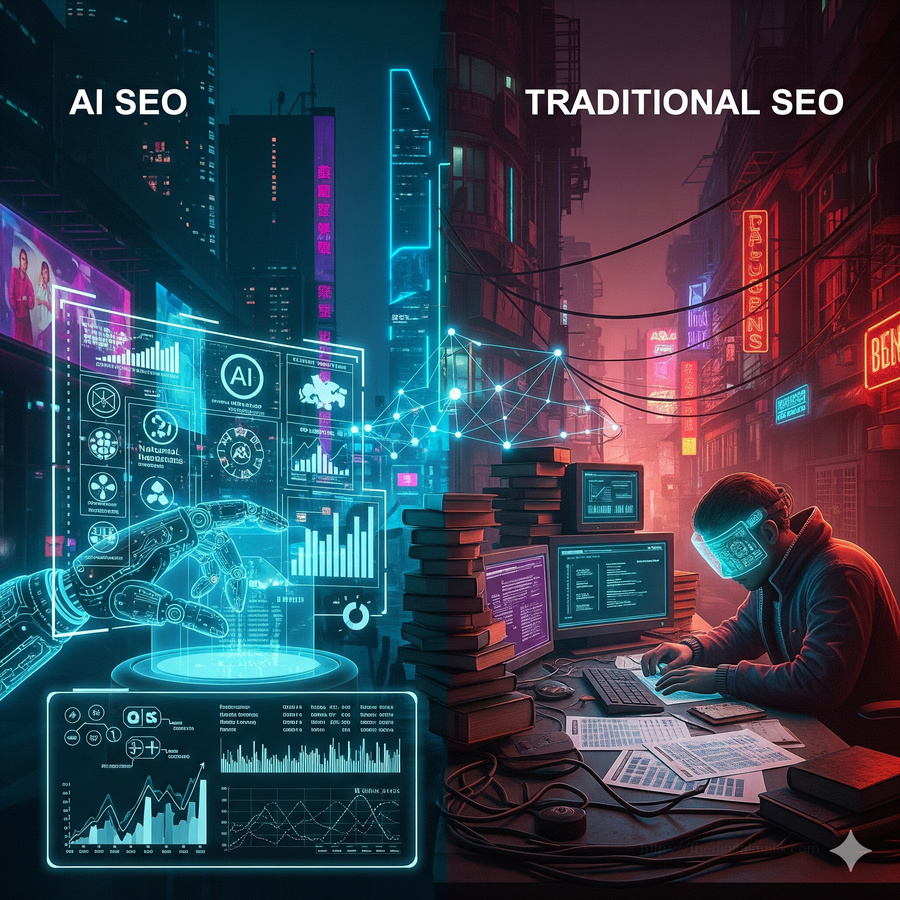
You don’t have to abandon traditional SEO. The most powerful strategy integrates both approaches to cover all discovery channels.
Integrated SEO Strategy – How AI and Traditional SEO Complement Each Other
| Channel | Goal | Primary Tactics |
|---|---|---|
| Traditional SEO | Rank high on Google SERPs to drive organic traffic. | Technical site health, keyword research, building backlinks, meta descriptions. |
| AI SEO | Be the recommended answer within AI assistants. | FAQ pages, Best Fit Briefs, online reputation, entity authority, conversational content. |
| Synergy | Dominating Search across all platforms. | Strong content (like case studies) serves both purposes. Positive reviews help both Google rankings and AI trust. |
Complete every profile thoroughly with consistent information, high-quality photos, and detailed descriptions of your services and expertise.
Advanced AI SEO Tactics and Tips
Content Optimization for AI
Write all content at a 7th-grade reading level using conversational language. AI tools prefer content that sounds natural and approachable over complex, technical jargon. Use short sentences, active voice, and familiar vocabulary.
Structure your content with clear headings, bullet points where appropriate, and logical flow. AI tools excel at processing well-organized information and are more likely to reference clearly structured content.
The Question-Answer Content Strategy
Create content that directly answers questions your potential customers are asking. Use tools like Answer the Public, or simply brainstorm based on customer conversations to identify common questions.
Structure these as individual blog posts or FAQ entries, always leading with the question as a headline and providing a comprehensive but concise answer.
This format aligns perfectly with how AI tools process and reference information.
Local SEO for AI Tools
For local businesses, emphasize your community connections and local expertise. Include references to local landmarks, neighborhoods, community events, and regional considerations that affect your industry.
This local context helps AI tools understand your geographic relevance and recommend you for location-specific queries.
It also demonstrates authentic community involvement that builds trust with both AI systems and potential customers.
90-Day AI SEO Blueprint: Implementation Timeline:
Days 1-30: Foundation Building
- Complete your FAQ page with 20+ relevant questions
- Set up comprehensive business profiles on all major platforms
- Create your first 5 case studies
- Begin systematic review collection from recent customers
Days 31-60: Content Expansion
- Develop 10-15 Best Fit Briefs targeting specific customer situations
- Create service comparison pages for your main offerings
- Launch your first press release announcing new AI SEO focus
- Begin outreach for guest content opportunities
Days 61-90: Authority Building
- Expand content library with additional case studies and briefs
- Secure 2-3 guest content placements or expert interviews
- Implement systematic review generation across all platforms
- Create city-specific pages if you serve multiple locations
The Future of AI SEO IS NOW
Believe it or not, AI search is still in its early stages, but the trajectory is clear. As AI tools become more sophisticated and widely adopted, businesses that establish authority and a comprehensive online presence now will have significant advantages.
The businesses that win or are ahead in this new landscape aren’t necessarily the ones with the biggest marketing budgets—they’re the ones that understand how AI tools think and provide the comprehensive, authentic information these systems need to make confident recommendations.
Your competitors are likely still focused on traditional SEO tactics while this massive opportunity develops.
By implementing this AI SEO blueprint now, you’re positioning your business to dominate recommendations in your industry as more customers turn to AI tools for business recommendations.
The shift to AI-powered search represents one of the biggest opportunities for business growth in decades.
The question isn’t whether AI will change how customers find businesses—it’s whether you’ll be ready when they do.
Start implementing these strategies today, and position your business to rank #1 when AI tools recommend solutions in your industry.
The future of Digital Marketing is here, and it’s time to claim your place at the top!
Frequently Asked Questions FAQs
How long does it take to see results from AI SEO efforts?
AI SEO typically shows results much faster than traditional SEO—often within weeks rather than months. Since AI tools aren’t dependent on complex ranking algorithms, they can begin referencing your improved content and expanded online presence almost immediately. However, building comprehensive authority and consistent recommendations across multiple AI platforms typically takes 2-3 months of consistent effort.
Do I need to optimize for specific AI platforms, or is there a universal approach?
While different AI tools have varying approaches, the core principles of AI SEO work across platforms. Focus on creating comprehensive, helpful content; building strong review profiles; and establishing authority through mentions and case studies. These strategies benefit your visibility across ChatGPT, Claude, Bard, and emerging AI search tools.
How important are traditional SEO factors like backlinks for AI SEO?
Backlinks are less critical for AI SEO than traditional SEO, but they still matter. AI tools often reference high-authority websites, so being mentioned on reputable sites increases your chances of recommendation. However, the quality and relevance of mentions matter more than the quantity of links.
Can small businesses compete with larger companies in AI search results?
Absolutely—this is one of AI SEO’s biggest advantages for small businesses. AI tools prioritize relevance, expertise, and customer satisfaction over company size or marketing budgets. A small business with excellent reviews, comprehensive content, and clear expertise can easily outperform larger competitors in AI recommendations.
How do I measure the success of my AI SEO efforts?
Track several metrics: increases in direct inquiries from customers who mention finding you through AI recommendations, improvements in review quantity and quality across platforms, growth in organic traffic to key pages, and mentions of your business across the web. Set up Google Alerts for your business name to monitor when you’re referenced online.
Should I focus on keyword optimization for AI SEO?
Traditional keyword optimization is less important for AI SEO. Instead, focus on natural language and comprehensive topic coverage. Use the terms your customers use when describing their problems and your solutions, but prioritize helpful, conversational content over keyword density.
How often should I update my AI SEO content?
Update your core pages (FAQ, services, about) quarterly or when you add new services or achieve significant milestones. Add new case studies and best fit briefs monthly if possible. Consistency matters more than frequency—regular, authentic updates build more authority than sporadic massive overhauls.


